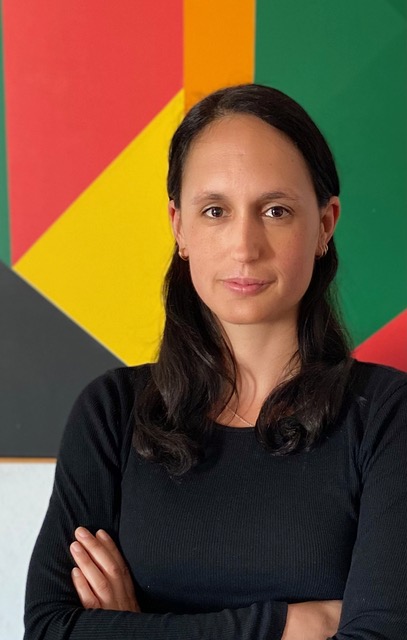
Prof Dr Martina Sproll
Prof. Dr. Martina Sproll is a professor of Social Sciences (with an emphasis on Structural Change and the Welfare State in International Perspectives) at the Berlin School of Economics and Law (HWR Berlin) since 2016. She is head of the Master Programme „Labour Policies and Globalisation“ at HWR Berlin and managing director of the research project “Digitalisation of Value Chains in the Retail Sector“.
She has been working at different Universities and Research Institutes such as the Frankfurt Institute of Social Research, Philipps-Universität Marburg, in the international research network desiguALdades.net and at the Institute for Latin American Studies at Freie Universität Berlin.
Link Homepage: https://www.hwr-berlin.de/en/hwr-berlin/departments-and-bps/department-1-business-and-economics/people-and-contacts/696-martina-sproll/
Main Research Fields
- Digitalisation/Platform Economy
- Global Production Networks
- Social Inequalities/ Gender Relations/ Intersectionality
- Social Reproduction
Selected Publications
- 2022: Global Contestations of Social Reproduction. Compounding Crises and COVID-19 (with A. Plomien and A. Scheele-Baer). In: Scheele, A./ Roth, J./ Winkel, H. (eds): Global Contestations of Gender Rights. Bielefeld University Press, pp. 163-181. https://pub.uni-bielefeld.de/download/2958095/2961702/Global%20contestation%20of%20gender%20rights.pdf
- 2022: Social Upgrading in Global Value Chains from a Perspective of Gendered and Intersectional Social Inequalities. In: Teipen C., Dünhaupt P., Herr H., Mehl F. (eds): Economic and Social Upgrading in Global Value Chains. Palgrave Macmillan, pp. 145-169.
- 2021: Globale Arbeit. In: Fischer, K., Hauck, G., Boatca, M. (eds) Handbuch Entwicklungsforschung. Springer Reference Sozialwissenschaften. Springer VS, Wiesbaden. https://doi.org/10.1007/978-3-658-05675-9_20-2
- 2021: Vom kulturellen Kapital zur Reputationsökonomie. Entwertung von Arbeitsvermögen und Qualifikation durch Crowdwork (mit T. Höhne), in: Büchter, K./ Höhne, T. (2021): Berufs‐ und Weiterbildung unter Druck. Ökonomisierungsprozesse in Arbeit, Beruf und Qualifizierung, Wiesbaden: Beltz Juventa, S. 124-145.
- 2020: Ungleichheit in globalen Wertschöpfungsketten: eine intersektionale Perspektive auf soziale Reproduktion, Österreichische Zeitschrift für Soziologie, 45 (2020), S.385-401. DOI 10.1007/s11614-020-00429-6, http://link.springer.com/article/10.1007/s11614-020-00429-6.
- 2020: Devaluation of cultural capital on online platforms and the changing shape of the social space (with T. Höhne), Work Organisation, Labour & Globalisation, Vol. 14 (1) 2020, pp. 32-46.
- 2016: Missing Links in Service Value Chain Analysis – Space, Identity and Inequality in Brazilian Call Centres, in: Flecker, Jörg (ed.): Space, Place and Global Digital Work, London: Palgrave, pp. 105-125.
- 2015: „Gleichstellung als arbeitspolitisches Feld. Symbolische Gewalt und Leistungsregime“, in: WSI Nachrichten 1/2015 (with M. Funder), S. 43-50.
- 2014: Capitalist Peripheries: Perspectives on Precarisation from the Global South and North, Special Issue, Journal für Entwicklungspolitik JEP), Vol. 30, No. 4/2014 (Ed. with Ingrid Wehr).
- 2013: From Silicon Valley to Shenzhen. Global Production and Work in the IT-Industry, Lanham MD.: Rowman & Littlefield (mit Lüthje/Hürtgen/Pawlicki).
- 2009: High-Tech für Niedriglohn: Neotayloristische Produktionsregimes in der IT-Industrie in Brasilien und Mexiko, Münster: Westfälisches Dampfboot (Dissertation).

Maria del Carmen Mayer
Maria del Carmen Mayer is research assistant in the research project „Digitalisation of Value Chains in Retail“ at the HWR Berlin.
Previously, she was a research assistant at the Chair of Sociology of Conflict at the Faculty of Sociology at the University of Bielefeld.
She is a PhD candidate at the Faculty of History and Sociology at the University of Bielefeld with a dissertation project on „Transformative Strategies of Collective Action in the Covid-19 Pandemic“. In a qualitative study, she examines the interaction of civil society and activism during the pandemic in (northern) Italy and investigates how social crises, social reproduction and collective action strategies interact.
She works and researches in German, English, Spanish and Italian.
She holds an MA in Political Science (with distinction) from the Goethe University Frankfurt am Main and a BA in Political Science from the Free University Berlin.
Main research interests
- Sociology of Conflict and Crisis
- Social Movements and Collective Action
- Social reproduction & inequality
- Qualitative methods
Selected publications
M. d. C. Mayer, V. Stern, P. Daphi, J. Roose (2021) (eds.): Abstand von Protest oder Protest auf Abstand? Soziale Bewegungen in der COVID-19 Pandemie. Forschungsjournal Soziale Bewegungen (FJSB): De Gruyter.

Dr Michael Fütterer
Dr Michael Fütterer has been a research assistant in the research project „Digitalisation of value chains in the retail sector“ (Head: Prof. Dr Martina Sproll) at HWR Berlin since May 2023.
He completed his doctorate at the Paris Lodron University of Salzburg on transnational trade union work in the textile and garment industry in India. In a qualitative study, he investigated multiscalar forms of representation of trade unions and their cooperation with global trade union federations, NGOs and advocacy organisations.
He previously studied political science, law and sociology at the University of Frankfurt.
Main research interests
- Trade unions and industrial relations
- Digitalisation and transformation of value chains
- Transnational trade union organisation
- Textile and garment industry in South Asia
- Qualitative methods
Selected publications
- Fütterer, Michael (forthcoming): Workers go global? Building spaces of solidarity in the garment industry. In Dolgon, Corey (ed.): The Oxford University Press Handbook on Sociology for Social Justice. Oxford University Press.
- Fütterer, Michael (2022): Fallstudie: Gewerkschaftshandeln im globalen Raum am Beispiel der Textil- und Bekleidungsindustrie in Indien. In: Fischer, Karin, Hauck, Gerhard, Boatca, Manuela (Hrsg.) Handbuch Entwicklungsforschung. Springer Reference Sozialwissenschaften. Springer VS, Wiesbaden. https://doi.org/10.1007/978-3-658-05675-9_42-1
- López, Tatiana & Fütterer, Michael (2022): Warenketten – aktuelle Konflikte und transnationale Solidarität. In: Zeitschrift für Marxistische Erneuerung, Nr. 129/ März 2022, S. 85-96.
- López, Tatiana & Riedler, Tim & Köhnen, Heiner & Fütterer, Michael (2021): Digital value chain restructuring and labour process transformations in the fast‐fashion sector: Evidence from the value chains of Zara & H&M. Global Networks. Online first: https://doi.org/10.1111/glob.12353
- Lopez Ayala, Tatiana & Fütterer, Michael (2019a): Herausforderungen und Strategien für den Auf bau gewerkschaftlicher Verhandlungsmacht in der Bekleidungswertschöpfungskette – Erfahrungen aus dem TIE-ExChains-Netzwerk. In: Carmen Ludwig/Hendrik Simon/Alexander Wagner (Hrsg.): Entgrenzte Arbeit, (un-)begrenzte Solidarität? Westfälisches Dampfboot, Münster, S. 175-191

Dr Tatiana López-Julies
Tatiana López-Julies is a post-doctoral resarcher at the Chair of Economic Geography at the University of Würzburg and an associated researcher in the research project „Digitalization of value chains in trade“ (Head: Prof. Dr. Martina Sproll) at the HWR Berlin.
She holds a PhD in Economic Geography from the University of Cologne. In her doctoral research project, she studied working conditions and struggles in the Indian garment industry. Her current research focusses on the digital restructuring of global value chains in the retail and agrifood sectors and on working conditions in the platform economy.
Main research areas
- Digital restructuring of value chains
- Platform economy
- Labor Geography
- Textile and garment industry in South Asia
- Wine industry in South Africa
Selected publications
- López, Tatiana (2023): Labour Control and Union Agency in Global Production Networks: A Case Study of the Bangalore Export-garment Cluster. Springer Economic Geography Series. Cham: Springer Nature. DOI: https://doi.org/10.1007/978-3-031-27387-2
- López, Tatiana & Fütterer, Michael (2022): Warenketten – aktuelle Konflikte und transnationale Solidarität. In: Zeitschrift für Marxistische Erneuerung, Nr. 129/ März 2022, S. 85-96.
- López, Tatiana & Riedler, Tim & Köhnen, Heiner & Fütterer, Michael (2021): Digital value chain restructuring and labour process transformations in the fast‐fashion sector: Evidence from the value chains of Zara & H&M. Global Networks. Online first: https://doi.org/10.1111/glob.12353
- López Ayala, Tatiana & Fütterer, Michael (2019): Herausforderungen und Strategien für den Aufbau gewerkschaftlicher Verhandlungsmacht in der Bekleidungswertschöpfungskette – Erfahrungen aus dem TIE-ExChains-Netzwerk. In: Carmen Ludwig/Hendrik Simon/Alexander Wagner (eds.): Entgrenzte Arbeit, (un-)begrenzte Solidarität? Westfälisches Dampfboot, Münster, S. 175-191.

